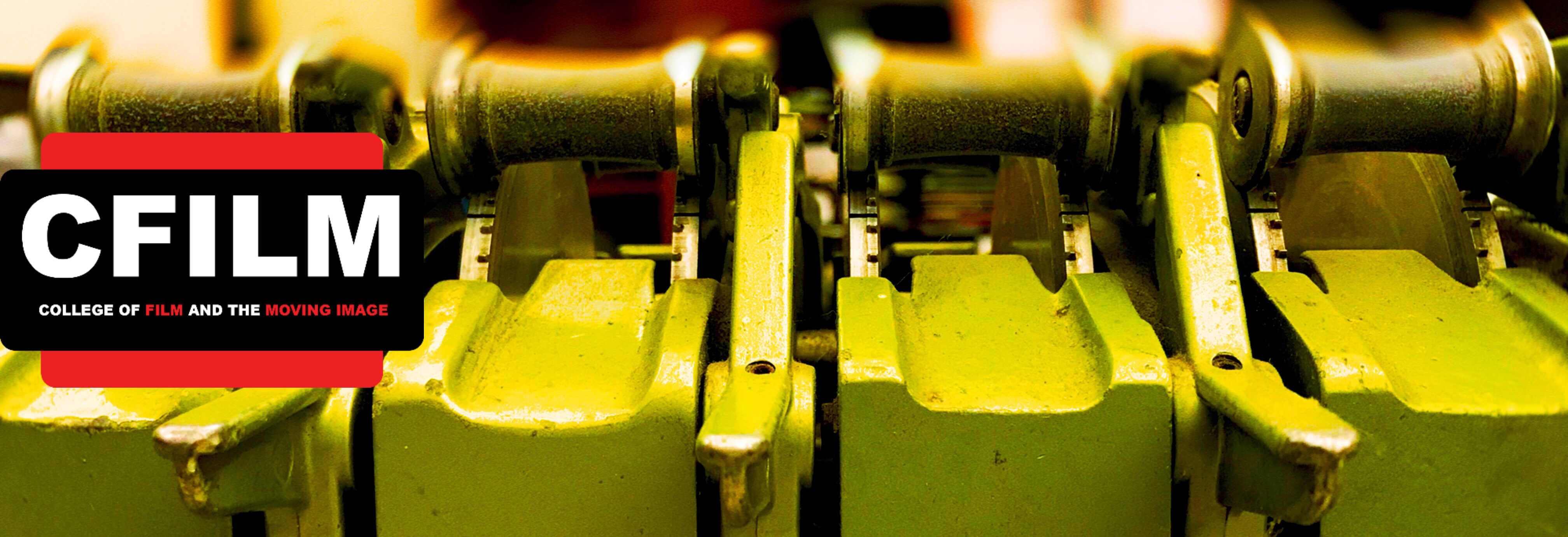By Steve Collins
This Fall I’m teaching two sections of our introduction to film production course, Sight and Sound. Every year I see something that surprises me. It’s a class where we make a series of small exercises and one of the advantages of this is that we can focus on doing something truly cinematic with absolute precision and not have the burden of an entire film to finish. We put all our energy into doing a small thing very well and year after year, I find the profound in these little bite-sized films the students make.
As I’ve been preparing to return, and finishing up work on my own film, I am reminded again, how maddening the filmmaking process is. The pursuit of a film where everything is exactly in its place, every composition, every movement, every cut, every sound, and to have all that in place without sucking the life and spontaneity out of the work, it’s can make you drop your head and bang it on the editing table. And yet… I would do it again, and again, and again.
Filmmaking is hard, and I think our job as teachers (in whatever our subject) is to present students with an impossible task and say, here are some tools to solve it; you are going to fail in some respects, but you are going to move forward. We have to learn to embrace impossible tasks, tasks that test our whole intellectual and emotional being. How else can we deal with the world we live in – its beauty, grace and promise, tangled up in injustice, tragedy and suffering?
I try to focus on what I can do to help. I prepare my lectures on how complicated it really is to get across the feelings and ideas in your head onto that screen. Art is about connection (artist to audience) and connection is our only refuge from a broken world. In class this semester, we’re going to struggle and sweat and try, and every year I get to bear witness to the beauty of growth, progress, change. I do not care if it is perfect, I’m hooked.

